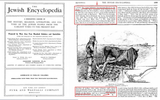Search Results
7/13/2025, 11:04:47 PM
>WWII and Pearl Harbor:
The attack on Pearl Harbor on December 7, 1941, was a pivotal moment in World War II, drawing the United States into the conflict. However, there has been significant debate and speculation over whether the U.S. government had prior knowledge of the attack. Evidence suggests that American intelligence had prior knowledge of an impending Japanese strike. For example, intercepted communications and decoded messages hinted at Japan’s intentions.
One such piece of evidence comes from former Chief Warrant Officer Ralph T. Briggs, a radio intercept operator stationed in Cheltenham, Maryland, in 1941. In an interview later declassified by the National Security Agency, Briggs recounted intercepting a coded Japanese message in early December 1941. The message, "HIGASHI NO KAZE AME" (East Wind Rain), was understood to signify a break in diplomatic relations with the United States. This, along with other intelligence, is proof that the U.S had at least partial forewarning of Japan’s aggressive intentions shortly before Pearl Harbor.
Roosevelt administration, aware of Japan’s growing desperation due to economic sanctions and an oil embargo, allowed the attack to occur to galvanize public support for entering the war. Prior to Pearl Harbor, American public opinion was overwhelmingly against involvement in World War II. Polls from 1940 and 1941 consistently showed that a majority of Americans opposed entering the conflict, with only a small percentage supporting actions that might provoke Japan or Germany.
The attack on Pearl Harbor on December 7, 1941, was a pivotal moment in World War II, drawing the United States into the conflict. However, there has been significant debate and speculation over whether the U.S. government had prior knowledge of the attack. Evidence suggests that American intelligence had prior knowledge of an impending Japanese strike. For example, intercepted communications and decoded messages hinted at Japan’s intentions.
One such piece of evidence comes from former Chief Warrant Officer Ralph T. Briggs, a radio intercept operator stationed in Cheltenham, Maryland, in 1941. In an interview later declassified by the National Security Agency, Briggs recounted intercepting a coded Japanese message in early December 1941. The message, "HIGASHI NO KAZE AME" (East Wind Rain), was understood to signify a break in diplomatic relations with the United States. This, along with other intelligence, is proof that the U.S had at least partial forewarning of Japan’s aggressive intentions shortly before Pearl Harbor.
Roosevelt administration, aware of Japan’s growing desperation due to economic sanctions and an oil embargo, allowed the attack to occur to galvanize public support for entering the war. Prior to Pearl Harbor, American public opinion was overwhelmingly against involvement in World War II. Polls from 1940 and 1941 consistently showed that a majority of Americans opposed entering the conflict, with only a small percentage supporting actions that might provoke Japan or Germany.
7/12/2025, 2:48:30 AM
Richard Hoskins author of "War Cycles, Peace Cycles." maintains that every instance of slavery abolition in recorded history can be traced to the influence of a banking systems which must keep the money system circulating at all costs. Hence, slaves are abolished whenever the economy begins to contract and fresh new borrowers are needed to get the wheels of commerce rolling again. Writes Hoskins, "I have never encountered a case in history where slaves were freed en masse for humanitarian reasons. First usury causes high prices (inflation), then heavy debts, a landless people, lower birth rates and declining population, and finally immigration of new peoples needed to borrow money into existence and pay taxes, or slaves are emancipated to achieve the same object." As Hoskins relates, a debt-free potential borrower is of far greater value than a heavily indebted native citizen.
Page 1
